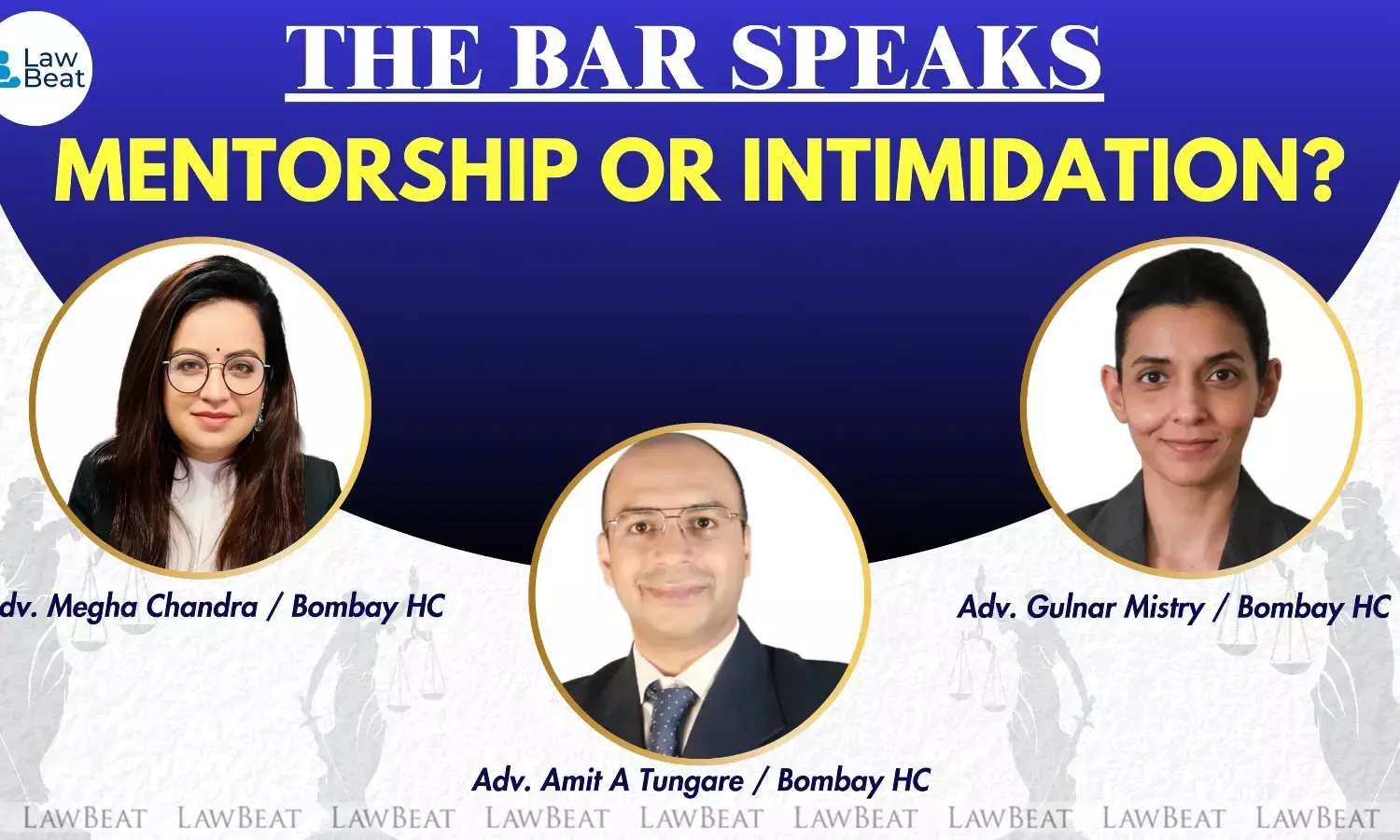Mentorship or Intimidation?: Young Lawyers Reflect On Their Early Courtroom Experiences

The Bombay High Court recently witnessed a disturbing moment that sent ripples through the legal fraternity: a young lawyer fainted in open court after being sternly reprimanded by Justice A. S. Gadkari. The incident, which occurred during proceedings on July 25, has reignited long-standing concerns about the treatment of juniors in courtrooms, particularly the culture of fear that many experience in their early litigation years.
According to the advocates present, the lawyer, appearing in a matter listed for dismissal on behalf of his senior, struggled to answer the court’s queries and was strongly questioned for being inadequately prepared. Minutes later, overwhelmed and visibly shaken, he collapsed in court.
While he later recovered, the episode has resurfaced focus on an important question: Do our courtrooms nurture young lawyers, or do they sometimes alienate them?
In this week’s Bar Speaks, LawBeat invited practitioners from the Bombay Bar to share personal stories from their formative years; memories that still shape how they view the Bench, the Bar, and their own growth.
Here’s what they had to say;
1. Adv. Amit A. Tungare
“I still remember the first time I rose to address a court. My hands trembled, my throat was dry, and the file in front of me seemed to weigh a ton. For young litigators, the courtroom is both a temple of law and a crucible of nerves. In those initial months, a single stern word from the Bench could feel like a thunderclap.”
For Adv. Tungare, the courtroom has offered both pain and perspective.
“I have experienced moments where a sharp rebuke stung more than I expected. But I have also experienced the other side, a patient judge who, instead of reprimanding, guided me through my submission. That moment changed me. It reminded me that courtrooms are not just arenas of law, but classrooms for the next generation of advocates.”
He believes judicial demeanour can be defining, for better or worse.
“The demeanour of a judge can make all the difference. A few words of encouragement can ignite confidence; harshness can crush it. If we want a strong, fearless Bar, our courtrooms must lean toward mentorship over intimidation. Young lawyers need the courage to speak, and a compassionate Bench can give them that voice.”
2. Adv. Megha Chandra
“One of my earliest experiences as a junior lawyer in Bombay was appearing before Justice G.S. Patel (now retired). I vividly remember a particular matter where I represented a judgment debtor. It did not go well, I was sternly reprimanded in open court, and I went home that day thoroughly shaken."
Despite the rough start, what followed shifted her perspective.
"To my dismay, I had to appear before the same Bench the very next day, this time for the decree holder. Still reeling from the previous day, I obsessively read my papers, trying to calm my nerves, showing up drenched in anxiety. But something shifted. That day, the Judge was completely receptive to what I was saying.”
The incident taught Adv. Chandra a lesson that stayed.
“Since then, across countless matters and courtrooms, I’ve come to a firm conclusion: the courtroom is not a place of intimidation, it’s a place of learning. The fear many juniors experience is often not about the Judge, but about the weight of responsibility and the pressure to perform. Yes, there are moments when a sharp comment can feel overwhelming. But in hindsight, those very moments are often the ones that make us better. The Bench, more often than not, offers invaluable mentorship, guidance delivered not always gently, but almost always meaningfully."
Her takeaway is one of tough love, resilience, and gratitude.
"What we may perceive as 'intimidation' is, in reality, a call to rise to the occasion. We're here to fight cases, not to be coddled. Learning to take a comment on the chin, to return better prepared, and to keep showing up, that’s how we grow. The courtroom, for a junior, is not an easy space, but it is a deeply formative one. And for that, I’m grateful.”
3. Adv. Gulnar Mistry
“The first time I was thrown in at the deep end was during final arguments in an appeal from a copyright infringement proceeding. It was hotly contested with a copyright society on one side and a radio station on the other. The matter was before a bench of Justice Chandrachud and Justice Sayyed, both of whom were then at the Bombay High Court.”
With senior counsel Navroz Seervai leading her, she was not expecting to be handed the reins.
“Navroz had a fixed matter at 3 PM before another court. As we inched towards lunchtime, he turned to me and said I should take over for the rejoinder and intimated the bench that I would be arguing in his stead. He seemed very confident, which was hugely encouraging for me as a pretty raw junior. But now that I look back on it, I have no doubt that his confidence also came from knowing that this particular bench would be receptive, and even kind, to a young junior. One must acknowledge that judges set the tone for how a courtroom functions, and that tone can also determine whether junior lawyers are entrusted with the responsibility of arguing heavy matters.”
Whether they faced a stern Bench or a supportive one, these lawyers agree on one thing: courtroom culture plays a critical role in shaping a junior’s journey.
Mentorship and intimidation may sometimes look similar, but the difference lies in whether the experience builds confidence or crushes it.
